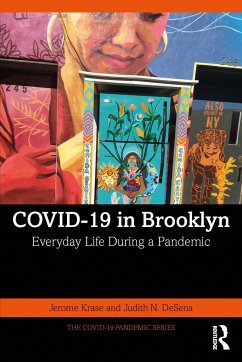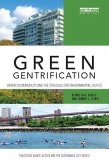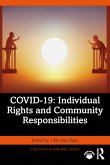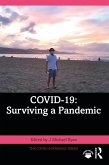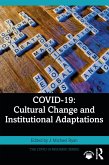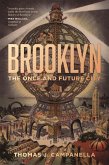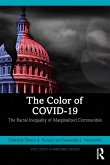COVID-19 in Brooklyn: Everyday Life During a Pandemic looks closely at the ways that the COVID-19 pandemic impacted the lives of ordinary people living in the super-gentrified Brooklyn neighborhoods of Park Slope and Greenpoint/Williamsburg, where the authors hunkered down during the 2020 lockdown.
Putting their private lives into broader scientific and public contexts, Krase and DeSena discuss a wide range of research methods and theories, as well as print and internet media sources about the pandemic. With words and images, the scholar-activist authors place their own personal experiences and those of their family and neighbors inside the broader context of global and national medical emergencies, as well as related economic, social, and political unrest, such as widespread unemployment, the Black Lives Matter Movement, and the contentious 2020 presidential election. Using a distributive social justice perspective and examining their own privileges, they discover and discuss the racial and economic inequities that affected the lives of other Brooklynites. These disparities included public health measures and lack of access to basic necessities of urban living. The book also addresses the cultural and economic shifts that took place at the start of the pandemic and contemplate how those forces will impact on future urban life, asking what the "new normal" of business, entertainment, education, housing, and work will look like locally and globally.
This richly illustrated book offers an invaluable local study of the impact of the pandemic on ordinary people in Brooklyn. As such, it will be of great interest to students and researchers in the humanities and social sciences.
Putting their private lives into broader scientific and public contexts, Krase and DeSena discuss a wide range of research methods and theories, as well as print and internet media sources about the pandemic. With words and images, the scholar-activist authors place their own personal experiences and those of their family and neighbors inside the broader context of global and national medical emergencies, as well as related economic, social, and political unrest, such as widespread unemployment, the Black Lives Matter Movement, and the contentious 2020 presidential election. Using a distributive social justice perspective and examining their own privileges, they discover and discuss the racial and economic inequities that affected the lives of other Brooklynites. These disparities included public health measures and lack of access to basic necessities of urban living. The book also addresses the cultural and economic shifts that took place at the start of the pandemic and contemplate how those forces will impact on future urban life, asking what the "new normal" of business, entertainment, education, housing, and work will look like locally and globally.
This richly illustrated book offers an invaluable local study of the impact of the pandemic on ordinary people in Brooklyn. As such, it will be of great interest to students and researchers in the humanities and social sciences.
"By setting their sights on the gentrified sites of the privileged and powerful, Krase and DeSena show us how the pandemic was lived with and through by those who had the means to cope with its damning effects which, as they reveal, leads to deep insights about and concern for the disadvantaged and marginalized."
Michael Ian Borer, Professor of Sociology, University of Nevada, Las Vegas, USA
"This book offers an intriguingly intimate view of life during the Covid-19 pandemic in two gentrified Brooklyn neighbourhoods. Qualitative sociologists Jerome Krase and Judy DeSena show how a variety of people coped during the various lockdowns and the reopening stages. A must read for all academics and students interested in the subject".
Italo Pardo, Professor of Social Anthropology, University of Kent, UK, and President of the International Urban Symposium-IUS
"Krase and DeSena combine visual and autoethnography to study social processes during the Covid-19 pandemic. Drawing on extensive research in Brooklyn, these two eminent sociologists stimulate academic debate on gentrification and neighbourhood dynamics and on the implications of the ethnographer's engagement in the field. A must-read for academics and students in the subject".
Giuliana B. Prato, Professor of Social Anthropology, University of Kent, UK, and Chair of the IUAES Commission on Urban Anthropology
"Krase and DeSena continue to offer an acute perspective on the city in which they live and work. Through the lens of the Covid-19 pandemic, Krase and DeSena use their extensive knowledge of urban sociology and gentrification studies to provide a time-specific snapshot of how some of Brooklyn's residents responded to the risk and realities of the pandemic."
Gary Bratchford, Senior Lecturer in Photography, University of Central Lancashire, UK
Michael Ian Borer, Professor of Sociology, University of Nevada, Las Vegas, USA
"This book offers an intriguingly intimate view of life during the Covid-19 pandemic in two gentrified Brooklyn neighbourhoods. Qualitative sociologists Jerome Krase and Judy DeSena show how a variety of people coped during the various lockdowns and the reopening stages. A must read for all academics and students interested in the subject".
Italo Pardo, Professor of Social Anthropology, University of Kent, UK, and President of the International Urban Symposium-IUS
"Krase and DeSena combine visual and autoethnography to study social processes during the Covid-19 pandemic. Drawing on extensive research in Brooklyn, these two eminent sociologists stimulate academic debate on gentrification and neighbourhood dynamics and on the implications of the ethnographer's engagement in the field. A must-read for academics and students in the subject".
Giuliana B. Prato, Professor of Social Anthropology, University of Kent, UK, and Chair of the IUAES Commission on Urban Anthropology
"Krase and DeSena continue to offer an acute perspective on the city in which they live and work. Through the lens of the Covid-19 pandemic, Krase and DeSena use their extensive knowledge of urban sociology and gentrification studies to provide a time-specific snapshot of how some of Brooklyn's residents responded to the risk and realities of the pandemic."
Gary Bratchford, Senior Lecturer in Photography, University of Central Lancashire, UK

